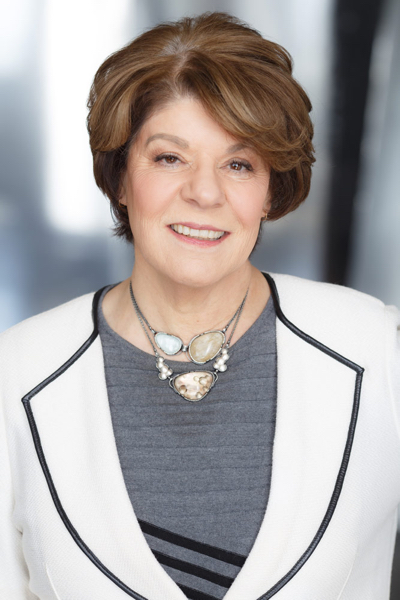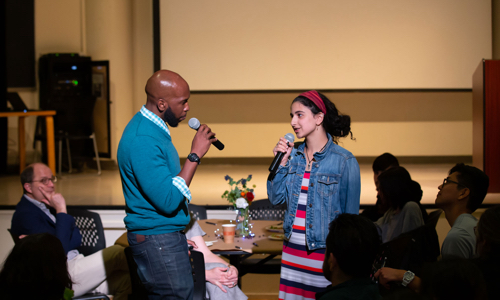Marking fifth year, Center for Innovations in Teaching and Learning plays vital role in campus mission

As the COVID–19 pandemic has upended everything at UC Santa Cruz, the Center for Innovations in Teaching and Learning has stepped forward to help.
The center, now celebrating its fifth anniversary, has played a vital role in providing resources and research to faculty to aid them in redesigning their classes for the new reality.
Founded in 2016 to continue and refresh the university’s long tradition of educational experimentation, CITL’s goal is to help educators and students thrive through use of the latest research and educational technologies.
Susan Strome, a professor of molecular, cell and developmental biology, said working with CITL has been transformative for her. Because of advice she received through CITL, she redesigned her syllabus to be more engaging and welcoming. She emphasized that she believes all students can succeed, and she outlined what she will do in partnership with students to help them achieve their goals. CITL also provided critical guidance in how to redesign her course for remote instruction.
“CITL is having a profound impact on teaching on campus,” Strome said, adding that many faculty members have looked to the center for help on offering remote instruction classes. “When we go back to in-person instruction, we will be better instructors.”
Over the last year, CITL—in close collaboration with Online Education and Information Technology Services—has offered numerous webinars and a teaching newsletter with ideas on such things as how to manage Zoom classes, incorporate videos, provide inclusive teaching and how to facilitate active learning. CITL also provided information on how to offer trauma-informed teaching. Faculty were encouraged to regularly ask students how they are doing during the pandemic and to ask about their needs.
“What we’re trying to do is have everyone learn,” said Jody Greene, the center’s founding director and associate vice provost for teaching and learning.
Prior to the pandemic, it was harder to get faculty engaged with the center’s efforts because they were so busy with their many responsibilities, Greene said. Understandably, they didn’t have endless hours to rethink how to run their courses. But with the onset of COVID–19, everyone had to rethink how they run their courses. Greene said she’s pleased to hear that Strome and many professors felt they benefited from the process.
“If you’re real clear on what you want students to learn and you design what you do in class and how you affect their learning in an intentional way, then you’re going to get a lot more learning than out of a really entertaining performance,” as one example, Greene said.
Because of encouragement from CITL, some professors have been willing to try things they never have before—like allowing students to retake exams until they got it right. The idea is to stop using tests as a way to sort students into “good” and “bad,” and to instead use them as assessments to help students learn.
Enrico Ramirez-Ruiz, an astronomy professor, said that the way UC Santa Cruz approaches teaching and evaluates teaching can be divided before or after CITL.
“It has changed the mentality around here,” he said. “It’s generated a really beautiful, supportive, intellectually brilliant community of learners and teachers.”
Ramirez-Ruiz, who has been a CITL fellow for many years, particularly appreciates how the center encourages professors to be better mentors to students.
“Good teaching, good mentoring practices are going to be rewarded and are essential to the way people are promoted,” he said.
He said CITL has also played an important role in getting departments to look at where they are losing students of color, and to take steps to correct that problem.
CITL will celebrate its fifth anniversary April 14 with a convocation featuring Estela Bensimon, professor of higher education at the University of Southern California Rossier School of Education and director of the Center for Urban Education, which she founded in 1999.
Bensimon is known nationally and internationally for her role in promoting equity in higher education. She developed a toolkit, which Strome used, to help faculty redesign their syllabuses in a more inclusive way.
Bensimon asks faculty members to be race-conscious and to pay attention to how minoritized students do on homework assignments. As an example, Latinx students in a class might have good attendance but might not be handing in homework because they think its optional.
“A lot of this is hidden curriculum,” Greene said. “It’s about making everything transparent so that everyone has an opportunity to navigate the course expectations and succeed.”

Bensimon also encourages faculty members to look at the strengths of minoritized populations. For example, faculty members should become conscious of the collaborative skills from communities less individualist than white culture. “She’s very adamant about a strengths-based approach,” Greene said.
Greene hopes people who hear Bensimon’s talk will come away inspired to continue working with CITL and the many partners with whom they closely collaborate to improve teaching and support equitable outcomes for students on campus.
“CITL is not changing teaching but changing the culture of teaching,” she said. “This is something we expect people will develop over the course of their careers.”
Original Link: https://news.ucsc.edu/2021/03/citl-fifth-anniversary.html
